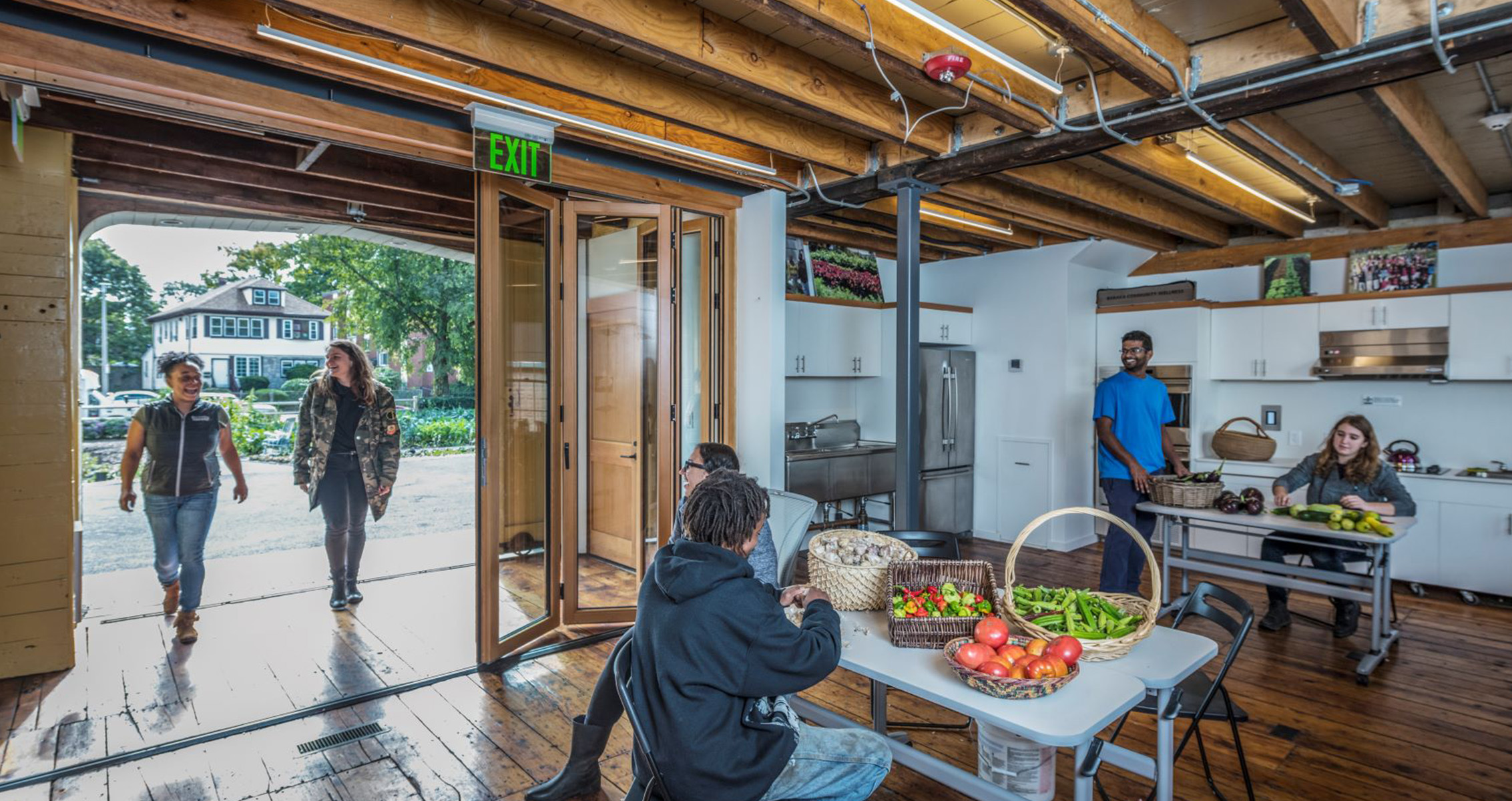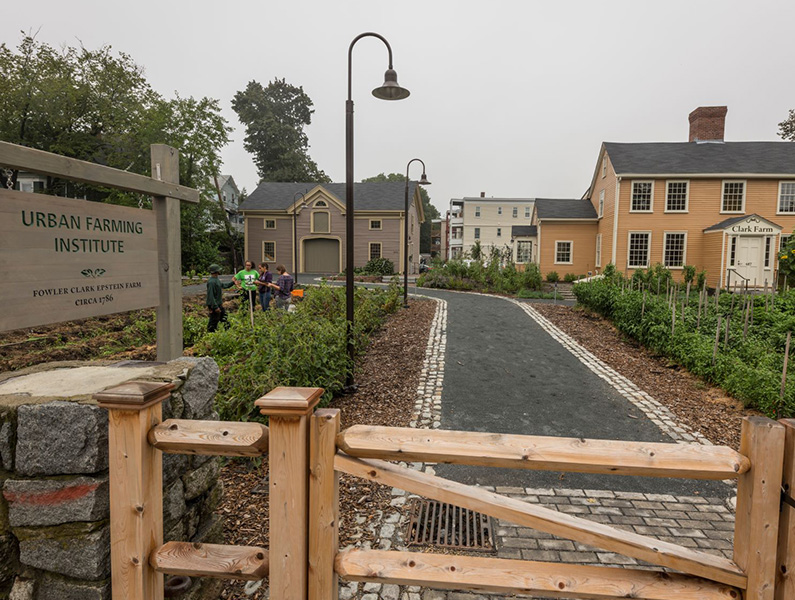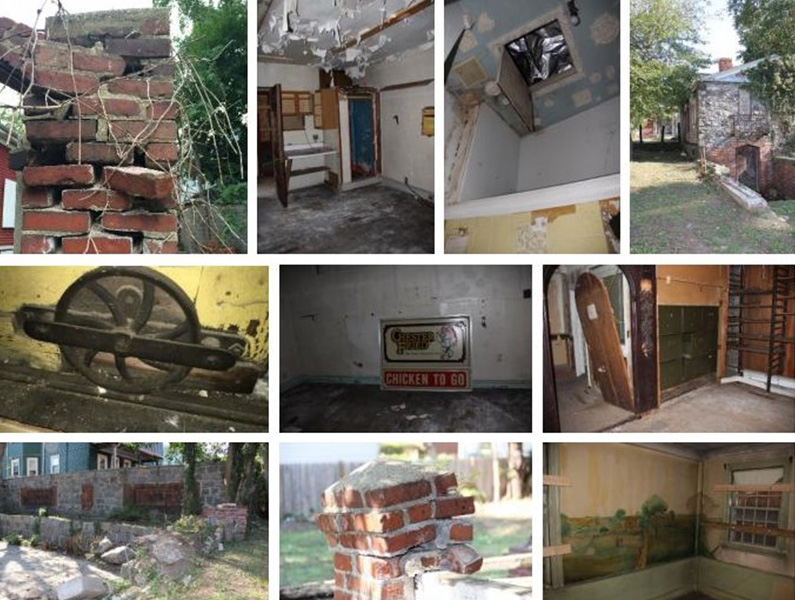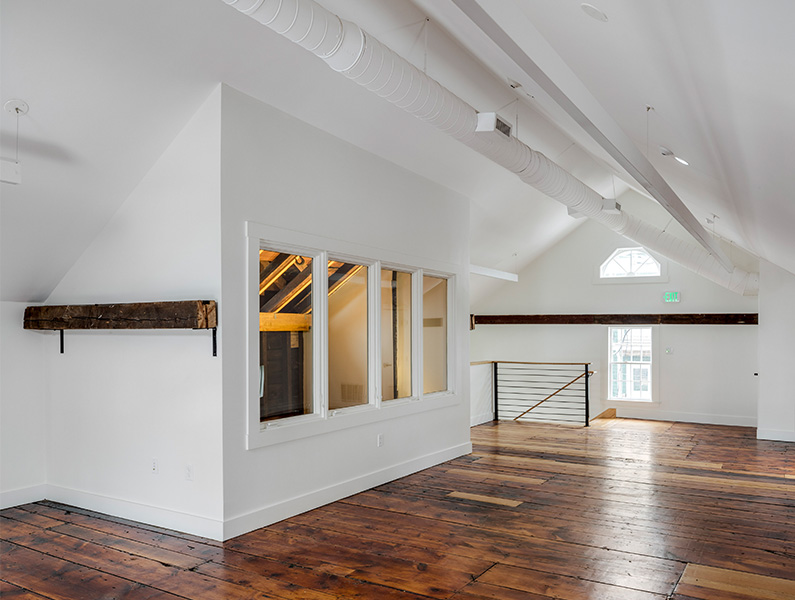As the leaves fall from the trees, as the growing season comes to an end, as bountiful harvests are transformed into feasts for families, friends, and neighbors, and as we come together in recognition for all that we have, I want to recognize a project we recently completed that reflects the true spirit of Thanksgiving: The restoration of Fowler Clark Epstein Farm in Mattapan, a neighborhood of Boston.
Over the last three years, Historic Boston and the partnership of four nonprofits transformed the landscape (once strewn with stone, crumbling rocks, and debris), the farmhouse (with shattered windows and rotting staircases), and barn (with leaky roofs, animals nesting throughout, and on the verge of total physical collapse). The Fowler Clark Epstein property begged for a better, more sustainable future and needed a purpose to drive the project. Enter the UFI, which engages urban communities to develop healthier, more local food sources through the creation of micro farms and green collar jobs training in the heart of the city. The organization not only wanted to help revive the farm, it also needed office space to facilitate its farmer training, host educational programming, and plan its annual urban farming conference. This site would become the headquarters for UFI and an integral part of the local community.
The project also sparked the passion of several architects at the Boston studio of Perkins&Will, which commits 1 percent of our billable resources to pro bono initiatives in the communities we serve. At the Fowler Clark Epstein Farm, this translated to several thousand hours of service over more than two years, guiding the design process and helping our partners through the challenges of dealing with complicated and often overlapping jurisdictions such as the Boston Landmarks Commission, the National Parks Service, and the Massachusetts Architectural Access Board. Beyond the complex regulatory process, the 1780’s farmhouse was in great need of repairs in order to be safe and accessible to the broader community.
To save these buildings structurally, we embedded steel frames within both of the existing buildings’ original post and beam constructions, allowing us to adapt to new uses such as offices and a teaching kitchen. Instead of trying to bury the new steel posts, threaded rods, and “Dutchman” connections, we left them exposed throughout the barn, juxtaposing the clean, smooth, new materials against the aged posts, beams, and joists. To support the floors, we sistered new joists immediately onto the original timbers, leaving the new wood and joist hangers unfinished. In the second floor of the barn, where the Urban Farming Institute has its office space, we left the hayloft area completely unfinished, exposing the original structure, hayloft door, and even the old chain hoist used to pick up heavy elements from the floor below. These decisions are an intentional stance, to accentuate the original construction and highlight the interventions required to save the buildings. This allows anyone who enters these spaces to appreciate the history and understand that these buildings have been given new life and are the catalyst for the future.
The significance of this project is not so much about the architecture, but rather about what happens in and around the buildings. It is about providing a place and supporting a vision of a healthier local food source. It represents the true potential of our small, unoccupied pieces of land. It provides an opportunity for children to learn that food does not come in plastic packages, and allows grandparents to pass on their culture and history through food. Parents can learn how to offer better, fresher food choices, while children can understand the impact of nutrition on their health. This farm provides a valuable community-based resource, facilitating connections that can’t be found online or through an app. This is an opportunity for the people of Roxbury, Dorchester, and Mattapan to learn how to be active participants in the farm-to-table economy, providing value to themselves, their families, and countless others. The community can come together to make a statement that sustenance, health, and well-being are fundamental drivers in our lives.
Fowler Clark Epstein Farm has evolved into so much more than a pro bono project for us. As we reflect back on the effort, passion, and dedication by our team and by all of the partners involved, we give thanks that we were invited to participate in such a life-changing experience. We look deep into the past to see all our future.





